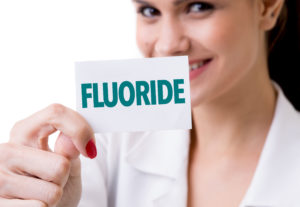
It seems like every couple of years, news stories appear asking if fluoride is helping or harming us. As any dental expert would tell you, fluoride has played an important role in protecting your teeth since your childhood. It’s important to shield yourself from incorrect information about fluoride by understanding how the substance works. In this post, your dentist in Attleboro explains the ins and outs of fluoride.
What is Fluoride?
Fluoride is a natural mineral that can be found throughout the world and inside the earth’s crust. It occurs naturally in all water sources, including our oceans, as well as certain foods.
In the 1930s, researchers discovered that those who grew up drinking naturally fluoridated water had up to two-thirds fewer cavities than those without fluoridated water. Because of this, many American water supplies contain fluoride. The American Dental Association, American Medical Association and World Health Organization all endorse the use of fluoride in water for its effects on tooth decay.
How Does it Help Me?
When fluoride comes in contact with teeth, it is absorbed into the enamel. Fluoride replenishes lost calcium and phosphorous necessary to keep your teeth hard. These minerals help strengthen your teeth and prevent further mineral loss. In children, fluoride becomes incorporated into the development of permanent teeth and makes it difficult for acids to weaken teeth. Thus, fluoride helps to both stop current tooth decay and prevent future damage.
Fluoride is also used to treat certain medical conditions. It helps prevent bone loss in those with rheumatoid arthritis and Crohn’s disease. It also treats bones weakened by osteoporosis. Those with oral conditions like gum disease, dry mouth, frequent cavities and crowns or braces can benefit from additional fluoride treatment.
Am I Getting Enough Fluoride?
If your drinking water is already fluoridated, brushing regularly with a fluoride toothpaste should be enough to keep your smile healthy. You can find out if your water from a public supply is fluoridated by contacting your local water district. If your water comes from a private well, you can have it analyzed by an independent testing company.
If your water is not fluoridated and does not contain enough natural fluoride, you should ask your dentist if you should use daily fluoride tablets or drops. Fluoride foams, varnishes and gels can be applied directly to your teeth during your biannual dental checkup.
People of all ages can benefit from fluoride. Reach out to your dentist to see if you are receiving enough fluoride or if you could benefit from additional doses.
About the Author
Dr. William Herr is committed to providing excellent care to patients of all ages. He is currently a member of the Massachusetts Dental Society’s Leadership Institute. If you have further questions about fluoride, he can be reached through his website or at 508-222-5950.

